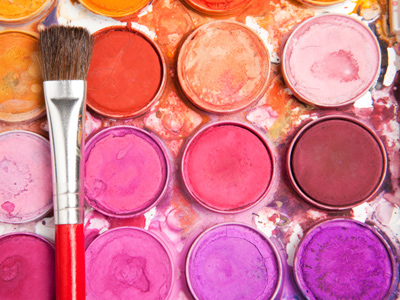
Artists' Materials
Art, whatever its style, is a form of communication. It is a series of images, which together have a meaning the artist is attempting to share. The message might be a simple one, such as the beauty of a landscape or of the human form. Or it may be more complicated, for example the conceived suffering in the lot of man, or the heroism and the horror of war.
For many thousands of years humanity has sought to communicate its thoughts through the medium of art. On cave walls paintings have been discovered which were created more than 40,000 years ago. Images line the tombs of ancient Egyptian pharaohs, and the Greeks and Romans decorated their cities with majestic statues - before art took a step back during the dark ages.
The development of the more durable oil paint, together with canvas supports, rendered egg tempura obsolete. It has, however, enjoyed a couple of revival periods. The British artist William Blake was known to use it, and there was a surge in popularity during the 20th century. Some artists are still using egg tempura today, though they are in the minority
Seccos (meaning 'dry') were another type of mural in which paint was applied to dry walls.
Gecko and Tesco are not murals at all, but a species of lizard and a chain of shops!
Recently emulsifiers have been added to oil paints, decreasing their drying time and ending the reliance on paint thinners such as turpentine
I'm not sure what effect egg white would have on a painting, so I wouldn't recommend using it!
Ironically, oil paint will cause the fibres on a sheet of canvas to decay so, prior to painting, the material is coated with gesso (a mixture of chalk and gypsum bound together) to protect the canvas
Ready for more?
not all...
quizzers. Try to win a coveted spot on our Hall of Fame Page.







